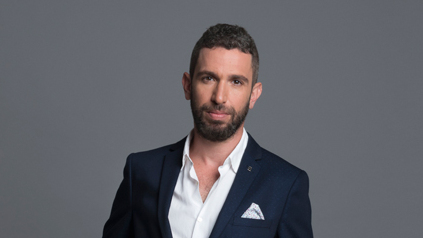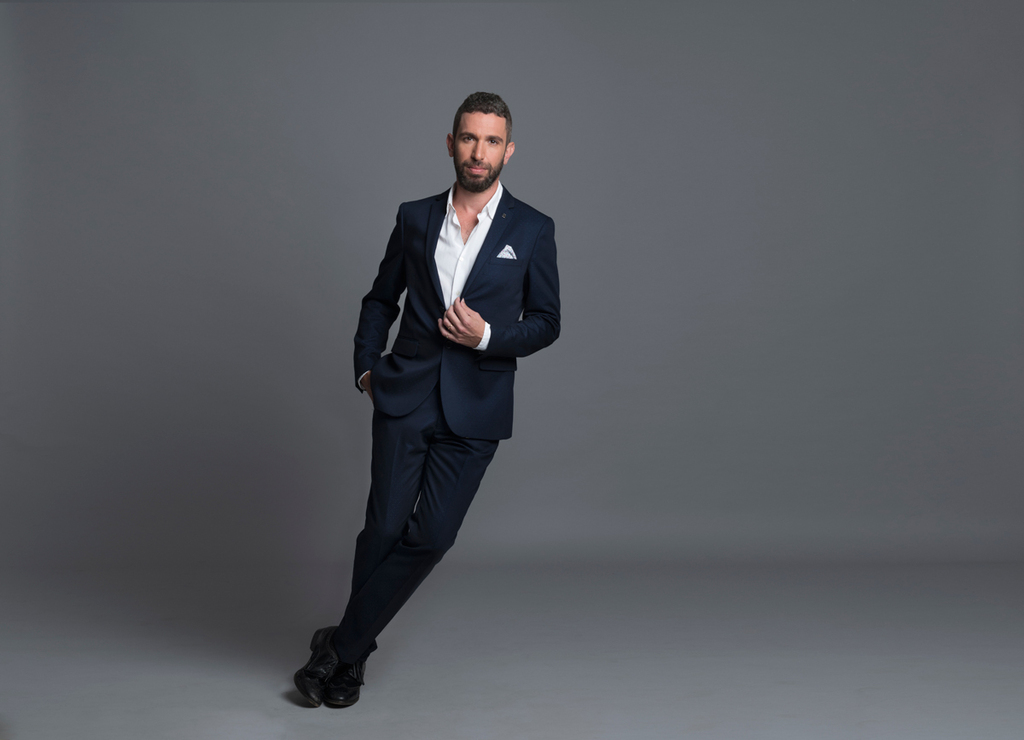
Just before the corona arrived, singer and musician Shlomi Shaban planned to go on a few months vacation to finish writing the songs for the new album he is currently recording.
Read more in Calcalist:
“I wanted to make a stop but I did not mean such a long and complete freedom,” he says. “I do an album once every seven years, so I accumulated a lot of songs and I was in an endless loop of gigs, and then the corona came and the freedom was longer than expected.”
Alongside working on the album, he wrote the music for the musical drama “Echo Your Voice” which will be staged by the corporation and deals with three generations of singers, and filmed the second season of “Live in Gimel from the Heichal Hatarbut”, which includes nine programs and is broadcast from Each week will host an artist for joint talk and performance. The first program, which will air on Friday (at 10:30 PM), will feature Aviv Geffen, followed by Dudu Tessa, Eviatar Banai, Jasmine Mualem, Gal Toren, Carolina, Amir Benyon, Riki Gal and Eran Tzur.
“I became a creator who gets up in the morning and goes to the studio”
When asked if he misses a real stage, of a live performance in front of an audience, he replies that “because I’m full of other things there are longings, but not sharp ones. I perform quite a bit in homes and intimate events, and when I start playing, there is some dormant muscle that starts to work and I feel the unique pleasure of singing in front of people, even in front of a screen. But right now I’m in the mode of creating and recording – and it fills me completely. The year has passed for me in another activity. I used to perform a lot and when it was all over, I became a creature who got up in the morning, went to the studio and worked hours alone with himself. It was wonderful and I’ll even miss it a little bit, but hope I take something further from it. Now they are performing again, but I do not attack performances and get into a whirlwind of endless rounds, I want to finish what I started. “
Shaban’s debut album, bearing his name, was released 20 years ago. There were plans to mention it but he was glad it was canceled. “I realized that the most beautiful way to mark 20 years of activity is to record another album instead of looking back and celebrating that album, with all my affection for it. Musically I have been through a lot since then. I was a classical musician who entered the world of rock and since then I have also done projects with jazz, also combinations between classical and popular and electronic music.
“I played with a lot of people and had special experiences like the last show with Hava Alberstein. I wrote for dance, film and theater and absorbed a lot of new dialects within my language. One of the reasons I make a few albums is because I always try to feel I found something new, and I end up hearing the album – And this is another album of mine, there are no revolutions, but in my world it is my revolution at the moment, it can be an imperceptible nuance. ”
The new songs were written inspired by the situation? Was it also a thought to write a protest song this year?
“One of the songs on the album is a modern adaptation of the biblical story of the 12 spies. I wrote it in the first closure not eligible for protest, but it would not have been born had it not been for the corona and how our country and the whole world reacted to this extreme situation. It’s really not a protest song by definition, I like songs like that less, I think once protest songs are too explicit – they can come up as a Facebook post or as a good article, no need to compose them. A song should stand on its own beyond a statement, important as it may be. “
1 View the gallery


Shlomi Shaban. “17 years ago I was ashamed to call Amir Benyon. Thanks to the corona, an unexpected musical connection was created between us. “
(Photo: Jonathan Bloom)
Simultaneously with the recordings, as mentioned, you are returning to film a second season of “Live in Retirement from the Hall of Culture”, how is it different from the previous one?
“We filmed the first season in the first closure, the Hall of Culture looked apocalyptic and we felt we were conveying a message from a closed place to the outside world. We did everything fast and filmed in three weeks. Naturally I turned to the artists I collaborated with in the last decade. I did not collaborate deeply and continuously, so I had to learn 40 songs and prepare for interviews. These are artists I appreciate and admire but not a close friend of most of them, so I could not build on the dynamics of friendships and needed preparation in terms of research. And with him it was similar to the first experience, but in other cases I was amazed to meet stories I did not know. ”
Shaban knew the story of Ricky Gal’s life but did not remember the sequence of events that made him up to the last detail, with Amir Benyon he had an exciting meeting even though they have not exchanged more than saying goodbye in the past. “It was a successful date from the first minute with an unexpected musical connection. 17 years ago I had a fantasy that Amir would direct in Hebrew ‘David is the wind’ by David Bowie (originally Johnny Mathis – Menashe) but I was ashamed to call him, and here is 17 “Years later I translated it and we did a new performance. Suddenly a passing fantasy – comes true in Corona. We continue to meet and play a bit, something strong is created. Jasmine Mualem is a wonderful new singer who released an album that never exploded, and its rise happens in a vacuum.
Shaban says the second season has improved, from the meticulous numbers to the on-screen visibility. One of the additions of the season is that each artist was asked to invite a guest to the last issue. A young artist he wants to expose to an audience or an inspiring creator he misses working with. Geffen invited Omri Keren, the grandson of Shalom Hanoch (“Talent on a World Premiere”); Benyon the Gidi Gov; Disappears Leah Shabbat; Banai Avishai Cohen; And Gal Neta Elkayam.
“They sang together ‘What is love?’ That Neta took to her amazing Moroccan place. There were a lot of interesting musical happenings.” He says that “this is a program that has nothing sensational, for better or worse, and it does not aspire to scoops. The goal is to talk about creation. “Inspiration, and we do something that has not happened on television for years: give real respect to music, four songs full of special performances and time to express on a respectable stage the doing, motives and fears. For that comes a blackmailer to the corporation, it is courage in my eyes.”
And what is the position of a TV presenter?
“A project like this that is completely in my element turns me on very much, but reality offered me and I chose not to do. I think the loss in my case is greater than the profit, because it is entering a world of ratings and excessive exposure and it is not for me. TV big is something that interests me, I will, but it does not turn me on like musical performances. It’s another field that opens. In a conversation with Aviv Geffen he accuses me of cowardice, and I accuse him of other things. I think Aviv needs excessive attention, and the place he can get it, among other things, is “TV.”